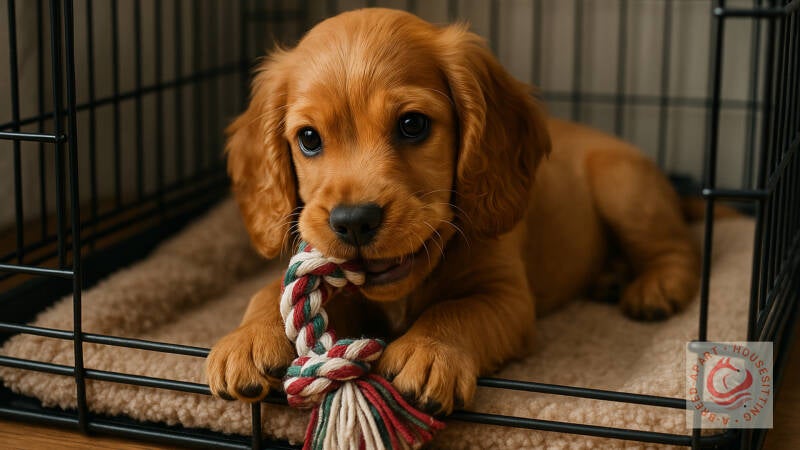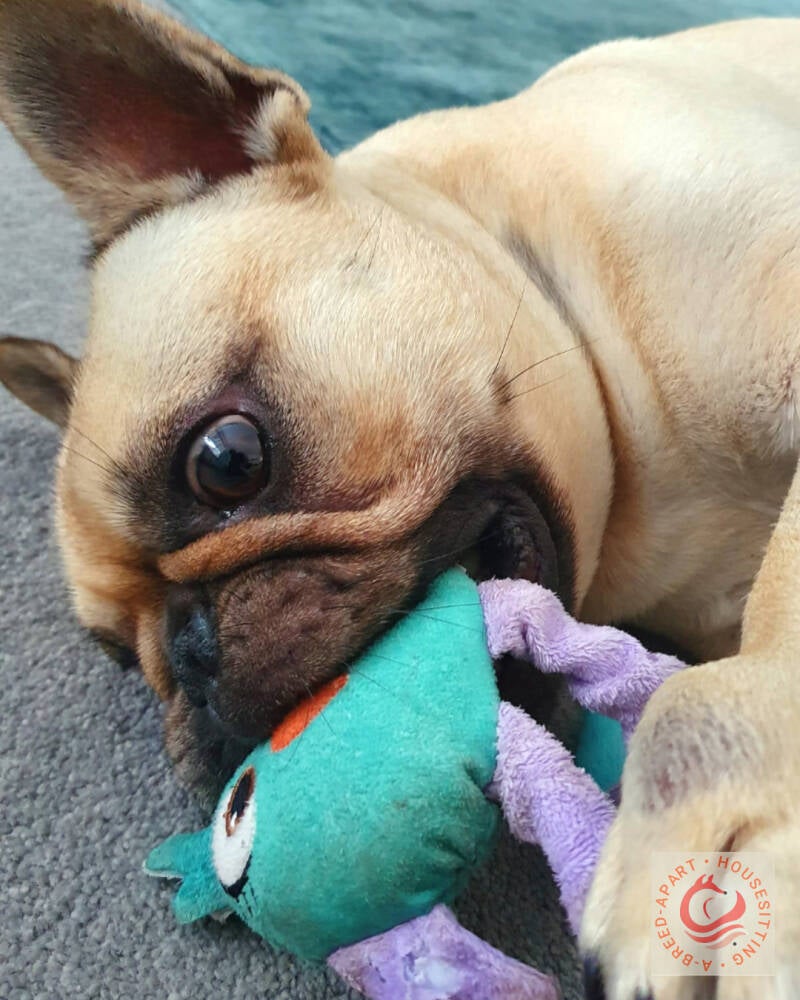Are you the reason your puppy won’t stop biting?
Yes, really. Many well-meaning owners unknowingly encourage their puppies to nip at hands, ankles, and clothes, and then wonder why the behaviour worsens. It’s not about being a ‘bad owner’, but about knowing what really works when those needle-like teeth come out to play.
Vets, trainers, and seasoned sitters are sounding the alarm: the way you respond to biting may be encouraging the very behaviour you’re trying to stop.

Why Puppies Bite (and Why It’s Not Naughty)
Let’s start with a bit of reassurance. Puppy biting is normal. It’s how puppies explore their world, express excitement, and soothe sore gums during teething. Much like human babies chewing on anything within reach, puppies are hardwired to mouth.
But here’s the rub: your reactions teach them whether biting gets them what they want; attention, excitement, play, or even drama.
Innocent Mistakes That Make Biting Worse
You might be accidentally reinforcing biting behaviour if you:
❌ Play tug with your hands
❌ Laugh or squeal when they nip (this can be seen as play!)
❌ Wave fingers or let them chew on sleeves
❌ Say “No!” but then still engage with them
Even gently pushing a puppy away can be misinterpreted by your pup as playful interaction.
Redirection: Your Secret Weapon
Instead of reacting emotionally, calmly interrupt and redirect:
- Say “Ah-ah” or “No bite” in a firm, neutral tone.
- Immediately offer a toy. Soft tug toys, a KONG, or a frozen carrot work well.
- Reward them when they switch to chewing the toy.
Don’t skip the final step and always praise your puppy for choosing the toy instead (positive reinforcement). You’re not just saying “don’t do that”, you’re reinforcing what they should do instead to receive your praise.

The Best Chew Toys to Save Your Fingers
Puppies bite! Give them something worth biting:
KONGs stuffed with peanut butter or yoghurt (and frozen)
Puppy teething rings
Tug ropes (with supervision)
Frozen carrots — soothing and edible
Have a rotation of toys available. Keep your puppy engaged because in our experience a bored pup quickly becomes a jawful of needle-sharp teeth!
Walking Away Teaches More Than Yelling
If your puppy continues to nip, calmly remove your attention and walk away. Social breeds like Cockapoos are especially responsive to this and they quickly learn that biting means they’ll lose interaction.
This teaches a powerful lesson: “Biting = no fun.”
It’s far more effective than shouting, which may frighten or confuse them, and in some cases, escalate the biting due to stress.
Puppy-Proof Chew Toys: What to Know Before You Buy
Always supervise your puppy with any new chew toy, especially during those first enthusiastic sessions. It’s the safest way to spot potential hazards and help them settle into the right kind of chewing.
Make sure you’re choosing a toy that’s the right size and strength for your puppy’s age and chewing habits. What works for a six-week-old spaniel might not hold up against a determined four-month-old Cockapoo!
Flavoured and fillable toys — like those you can stuff with peanut butter or yoghurt and freeze — can be a real game-changer. Not only do they soothe sore gums, they also help redirect your puppy’s urge to bite onto something far more appropriate than your hand or chair leg.
The toys listed below are highly rated by both professional trainers and dog owners, and stand out for their safety, durability, and ability to keep pups both entertained and comforted throughout the teething phase.
Disclaimer: As Amazon Associates, we earn from qualifying purchases. This means that links to products on Amazon.co.uk are affiliate links.
Got Kids at Home? Time for a Family Briefing
Children often unintentionally excite puppies by running, squealing, or waving their hands; all actions and stimuli that may trigger play-biting. Remind children to move calmly, speak softly, and use toys rather than fingers when interacting.
And always supervise puppy-child play. Even the gentlest pup can get too excited.
Will They Grow Out of It?
Yes, if bite inhibition is reinforced. With consistency, most puppies begin to settle between four to six months of age. Without consistent guidance, biting may continue and worsen with adolescence.
If biting becomes aggressive or obsessive, speak with a qualified trainer or behaviourist. The Dogs Trust and RSPCA both offer sound advice and referrals.
The truth is, puppies don’t come pre-programmed. They learn from every interaction, including the ones we don’t realise are teaching them behaviours that may become problematic as they grow.
By recognising the role we play, we can step in with calm, consistent guidance and help our puppies grow into well-mannered, confident adult dogs; the kind we’re proud to take down to the fresh produce market, into the village pub for Sunday roast, or for a relaxed stroll down the local bridleway.
Ready to stop the biting madness? Start by changing how you respond.
And if you're planning time away during these crucial early months, ensure your sitter is puppy-savvy. Our teams at A-Breed-Apart and Running Duck both have experience in caring for young puppies and adolescent pups. If you need a professional, experienced and dependable sitter for your pup or pups, we'd be happy to discuss your dates and needs. Please complete the short Enquiry Form and we will be in touch.








Add comment
Comments